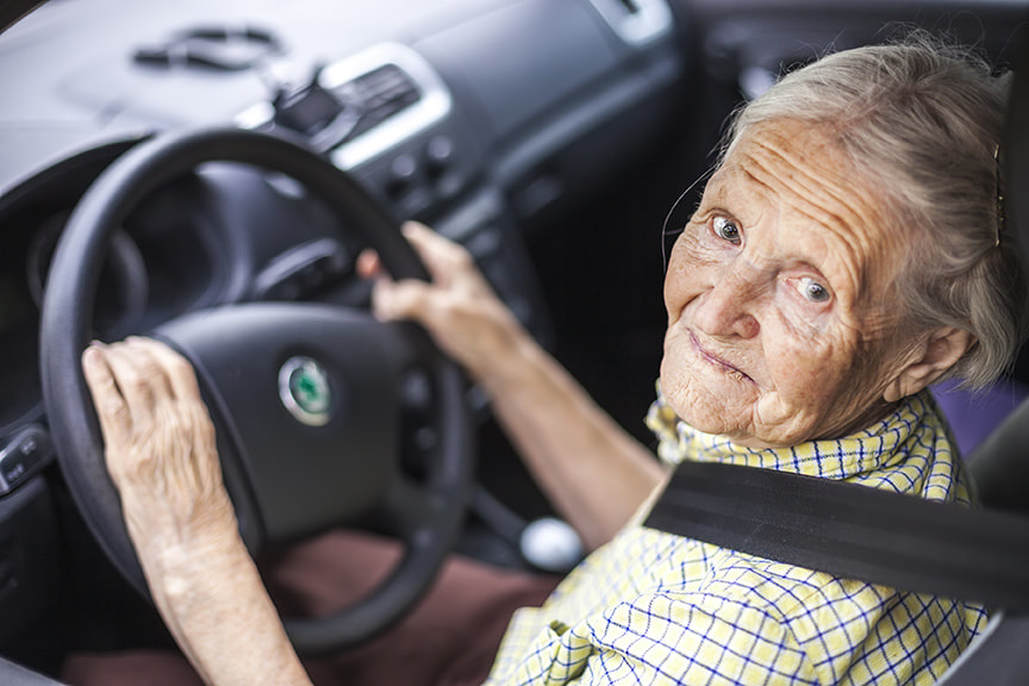|
One of the uglier conversations I ever had with my mother was over concerns my sister and I had about her driving abilities -- or lack thereof -- as she approached her 80th birthday. Until she was 75, my mother commuted several times a week between her home in Highlands and her job as a journalism teacher at Fairleigh Dickinson University in Teaneck -- a long, difficult commute she often managed at night and in all kinds of weather. But when she began exhibiting what we later realized were the early signs of dementia, she started to lose her confidence behind the wheel. My mother admitted that she sometimes felt lost when driving -- even close to home in areas she was familiar with. She increasingly asked me to drive her places rather than drive herself. She clearly was having difficulty staying focused on the road. But when my sister and I suggested my mother stop driving, you’d think we had asked her to stop breathing! “What am I going to do without a car?” she said again and again. Not long after, my sister and I quietly gave my mother’s Subaru Forester to my sister’s daughter, who had just started driving. For months afterward, my mother would ask repeatedly, “Do you know where my car is?” In retrospect, my sister and I could have handled the situation a lot better. What I didn’t know then is that a great deal of research and advice are available to help evaluate the driving skills of elderly people and then sensitively discuss the issue with them. “Because driving is closely tied to freedom and independence, acknowledging the possibility of one day being unable to drive is difficult for almost anybody,” according to AAA. “This is why it’s important to prepare for a conversation about safe driving.” AAA and AARP both offer valuable resources for family members concerned about loved-ones continuing to drive late in life. It’s important to keep in mind that just because someone is in their 80s or even 90s doesn’t mean they no longer can drive safely. On the contrary, data show that “seniors are safe drivers compared to other age groups,” AAA reports in the SeniorDriving section of its website. Senior citizens are more likely to wear seatbelts, observe speed limits and avoid drinking and driving. But because people are living longer than they used to, seniors are “outliving their ability to drive safely by an average of 7 to 10 years,” according to AAA. What’s more, three-quarters of people who are 65 or older take medications -- many of which can impact driving performance. “The average driver makes about 20 major decisions during each mile driven -- and often has less than one-half second react to avoid a potential collision,” according to AAA. The automobile association has developed a self-assessment test to help seniors determine if their driving skills have deteriorated. The test seeks responses to statements like, “Intersections bother me because there is too much to watch from all directions,” and “My thoughts wander when I drive.” Family members also should be on the lookout for tell-tale signs. Two common indicators that an elderly person no longer can drive safely:
AARP offers an online tool to help family members assess the abilities of elderly drivers. “How do you know when a bump is just a bump, or when it’s a sign that your loved-one should pull off the road for good?” AARP asks. To answer that question, AARP asks family members to fill out an extensive questionnaire covering everything from the driver’s medical history and mental state to how well he or she performs a range of driving skills -- from starting the car to backing out of parking areas. After tallying the answers to more than 50 questions, the website spits out a driver-safety score. AAA offers an interactive tool to help determine whether a driver’s medications are likely to impact his or her abilities. Simply type in the names of the medications and the website displays a slew of information about which drugs have the potential to diminish one’s driving abilities. If the various assessments lead to the conclusion that an elderly person should no longer drive, then comes the difficult task of delivering the bad news. AAA offers a number of useful tips when it comes time to have “the conversation.” Among them:
Written by T.J. Foderaro
1 Comment
|
AuthorT.J. Foderaro Archives
February 2020
Categories
All
|
Copyright © 2023, Twin Lights Home Care, All RIghts Reserved

 RSS Feed
RSS Feed
